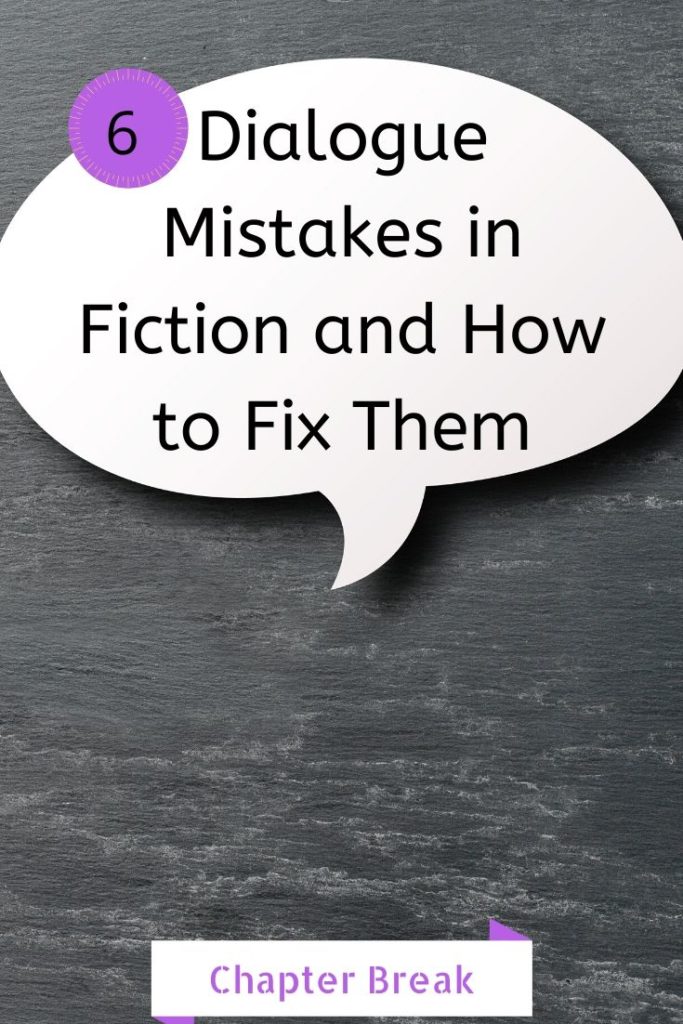How To Fix These 6 Mistakes In Fictional Dialogue
Good dialogue should meet a lot to your readers. However, most writers tend to struggle with writing good dialogue, especially professionals.
But not to worry! If you avoid these six common mistakes, your written dialogue will flow amazingly and, more importantly, make sense to your readers.
- Writing Dialogue Too Realistically
“Many writers want their dialogue to sound realistic, but at the same time, they risk creating a disconnect between them and the reader,” says Chloe Real, a creative writer at Essayroo and State of writing. “It’s true that in real life, people say ‘uh,’ ‘um,’ and ‘like’ so many times; but when that’s repeated multiple times in literature, it can be annoying to read. So, only make sure that your dialogue makes sense to the reader.”
- Characters Talking While Doing Nothing
In real life, when you see someone talking to another person, observe what they’re doing, as the conversation progresses. Is one person eating food? Is the other person tying their shoes?
Notice that movement is key when writing dialogue. Movement shows the emotional state of a character. For example, one character could be intensely focused on a video game, while their mother is waving her arms trying to get them to stop playing and do chores. Or, one person can be digging a hole, while their boss is writing things down on a clipboard.
The point is to immerse your writers into what’s going on in the story. By incorporating movement, you can illuminate the dialogue.
- Writing Dialogue That Serves No Purpose
As you write dialogue, keep the following objectives in mind:
- Dialogue has to move the plot along.
- Dialogue needs to reveal character.
- Conflict and tension have to be reflected in the dialogue.
- Dialogue must be able to provide important information.
Without the following objectives (or in this case, without a purpose), dialogue can sound boring. If the dialogue is not moving the plot along or telling us anything, then something’s wrong.
With that said, there are two fixes:
- Cut out the boring details, and stick with the good stuff, OR
- Turn boring, purposeless dialogue into meaningful dialogue by illustrating thoughts and actions.
- Incorrect Punctuations
Having incorrect punctuations or misplaced quotation marks in your dialogue is unacceptable in writing, because it not only confuses readers, but also hurts your credibility to write a good story. Here are some simple rules to follow:
- Whenever a different character speaks, start a new paragraph.
- Punctuation goes inside the quotation marks.
- Use a comma before the speaker tag.
- “I said it,” she said.
- Since speaker tags are part of the sentence, they don’t need to be capitalized.
- “Is he going home?” he asked.
- When inserting a speaker tag into the middle of a sentence of dialogue, use commas.
- “When I get home,” she said, “I will make dinner.”
- Not Showing Any Tension
“There will points in time where you have to show tension in your dialogue,” says Abby O’Loghlin, a blog editor at Australian help and Paper fellows. “Whether it’s to show characters’ emotions, or emphasizing the stakes in the story, the tension has to be recognizable. Think about what your characters care about, and what they’re going to do about it. Opting for a life-and-death situation is usually a cop-out, because it’s too easy to incorporate in a story. Try going for a situation in your story that’s worse than death, since it’s not necessarily the ultimate stake possible.”
- Overusing Dialect, Slang, Profanity, Or Jargon
Using dialect, slang, and profanity, is okay, but only when used sparingly, and with purpose. With dialect, use word choice, idioms, and sentence structure, instead of forcing your words to change if unnecessary. Too much dialect spelling can be distracting and hard to read.
Now, for slang and profanity, again, use sparingly. The readers should be able to understand how and why your characters are swearing and or talking in slang.
Finally, technical jargon — medical, military, scientific — should also be used sparingly – just enough, so that people can understand and not get bored.
Conclusion
Dialogue can move your narrative along; however, it’s not enough to write just any kind of dialogue. With emotion and tension, dialogue becomes more powerful in a story. As you learn from these six mistakes, and fix them, not only will the dialogue make sense, but also, your readers with be 100% emotionally-invested in the story and characters.

Bio
Molly Crockett writes for Academized and Assignment writer. As a marketing writer, she shares her unique lifestyle tips and personal development advice with her audience. She also works as a blog editor at Boom Essays blog.
Note: Some posts may contain affiliate links. Should you choose to purchase a product, we will receive a small commission for the sale at no additional cost to you. Chapter Break is a participant in the Amazon Services LLC Associates Program, an affiliate advertising program designed to provide a means for sites to earn advertising fees by advertising and linking to Amazon.com.



People keep saying that they don’t like to read books where the dialogue is without diacritical marks. It doesn’t bother me that much, as long as we can understand that someone is speaking.
I agree, Davida!